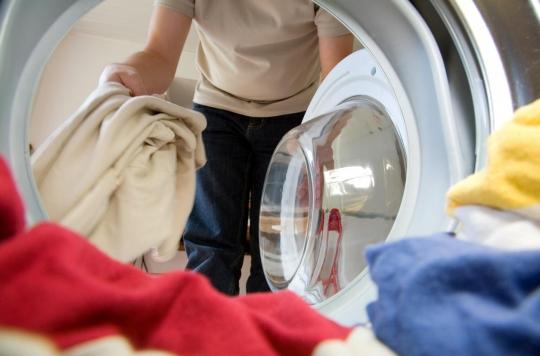Faced with the progression of the Covid-19 epidemic observed in France during the summer, the Academy of Medicine explains precisely how to properly wash fabric masks.

- The Academy of Medicine recalls good practices on the use of compulsory masks in many public spaces and at work
- Fabric masks must be washed regularly but the temperature of 60° is not necessary
- These masks should never be worn for more than one day
The persistent circulation of SARS-CoV-2 and the progression of the Covid-19 epidemic observed in France during the summer led to the wearing of a mask being made compulsory in all closed places from July 20, then to extend this obligation outdoors in many municipalities and large cities during the month of August.
Never wear them for more than a day
Faced with the situation, the Academy of Medicine finally returns to the need to wash the fabric masks at 60°C in the machines, which will certainly simplify the life of many households, now authorized to throw away the protections with the rest of the dirty laundry basket.
The medical academy states that “in public spaces, washable fabric masks should be preferred to disposable masks for obvious economic and ecological reasons” :
– they can be washed by hand or in the machine, with a detergent, like body linen, the temperature of 60°C being no more justified for washing masks than for washing hands;
– they must be changed when they become damp and never be worn for more than one day;
– they are reusable after each wash cycle – drying as long as their qualities (mesh of the fabric and integrity of the flanges) are not altered.
With regard to disposable paper masks, said “surgical”, they should preferably be used during care activities and systematically for people who are sick or in isolation.
An altruistic gesture whose collective effectiveness is certain
“Wearing a mask in the community is not optional; masking up to protect others is an altruistic gesture whose collective effectiveness is certain when everyone applies it; it makes each citizen united in the global response to the pandemic”, recalls the Academy of Medicine.
In metropolitan France, the progression of viral circulation is exponential and “the rapidly growing dynamics of transmission is worrying”, specifies Public Health France in its latest report. 92 departments have an incidence rate above the attention threshold of 10 cases per 100,000 inhabitants per week and 19 departments have an incidence rate exceeding the alert threshold (50/100,000 inhabitants). Viral circulation is particularly active in young adults.
















